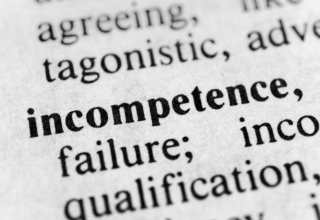Career
Is Good Enough Good Enough?
Personal Perspective: At my new job, I’m struggling with feelings of inadequacy.
Posted June 16, 2024 Reviewed by Gary Drevitch

I started a new job almost three months ago and I’m experiencing major feelings of inadequacy. I’ve always had confidence in my clinical skills but now I’m beginning to doubt my competence. My supervisor seems to be satisfied with my performance, so it isn’t a message I’m getting from him. In our supervision group last week when I brought up a challenging case, he remarked, “Andrea, you do seem to get the most interesting cases.”
Perhaps it’s because I’m getting many difficult cases and progress, if any, is slow. Perhaps it’s the client who wants an instant fix for his psychotic symptoms. Perhaps it’s the client who emailed the administrative team last week and said he wanted a clinician who was a “better fit.” When my supervisor asked me what the client meant by a better fit, I had to say he didn’t specify.
Although my last job was as a clinical supervisor, the demands were not sustainable. I was underpaid, working 11-to-12-hour days, supervising seven clinicians, reviewing all their notes and treatment plans, and screening all the intakes. I deliberately took a position as a staff psychotherapist at this job for an almost fifty percent salary increase with 8-to-9-hour days.
At work I recently became aware that they hired two clinical supervisors, each having about 30 years’ experience, which is six years more than me. I know that is one glaring hole in my career. Why have I not advanced to the role of supervisor? I don’t have an answer. Am I not ambitious? Or do I not have what it takes?
I was told my current job promotes from within. LCSWs are promoted to lead teams of the LMSW’s. The human resources person who interviewed me said he could see that happening for me in less than a year. I hope that he is right. I’m trying hard.
One study found that, “for people feeling inferior due to personal experience, their ways of thinking and life attitudes are the main internal causes of their inferiority feelings. Some of them tend to negatively evaluate themselves because of their failures and setbacks in life or work.”
Because I feel inadequate, I recognize the familiar signs of self-sabotage. I’ve enlisted the help of a new therapist to help me figure out why—again—and how to stop the cycle before the damage becomes irreparable and I destroy—again—what I’ve worked so hard to build.
In a post on this site, Hilary Jacobs Hendel writes: “We are not born feeling inadequate. Life experiences and emotions create that sense within us in a variety of creative ways.”
I know that my father was instrumental in creating these feelings of inadequacy. When I was in sixth grade, I told him I wanted to be a veterinarian when I grew up and he told me I wasn’t smart enough to pass all the science classes. Every time we played a game of chess, I’d meet his eyes after moving my rook, or knight, or bishop, and he’d shake his head. I got the feeling I could do nothing right.
Even as an adult, I’d cringe under the harshness of his words. When my brother and I went grocery shopping for him, he’d tell me to get him cake. When I’d come back with an Entenmann’s cake, which is the brand we always had in our house when I was growing up, he’d say to me “Why did you get me this s--t cake?”
When I told my former psychiatrist, Dr. Lev, about my new job, she emailed me back and let me know, “Please trust that you are very good and remember Winnicott's good enough mother. Same for us. Just be a 'good enough therapist'—a 'perfect' one is no good.”
I wish I could embrace her words.


